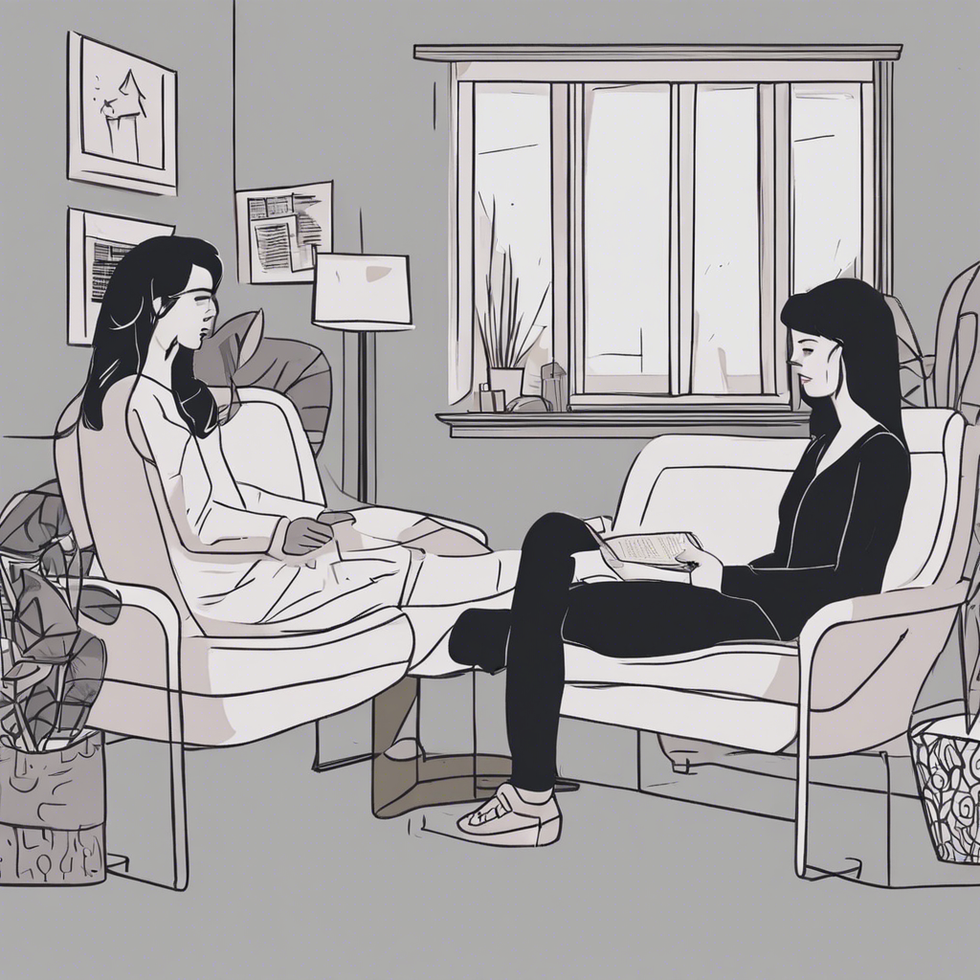The month of May is awareness month for a lot of medical conditions, including but not limited to, lupus, osteoporosis, hepatitis, Celiac's disease, asthma, stroke, and arthritis. While you have probably heard about some or all of these conditions, May is also awareness month for Crohn's disease and colitis, two lesser known conditions.
As someone who has Crohn's disease, I've noticed that there's a pretty significant lack of knowledge and a lot of misunderstanding surrounding these conditions. For Crohn's and colitis awareness month, here's what you should know:
"What is Crohn's disease and/or colitis?"
Crohn's disease is an autoimmune disease where the body's immune system attacks the lining of the gastrointestinal tract, causing chronic inflammation. Colitis can have several forms, one of the most common being ulcerative colitis. Colitis is a chronic inflammatory condition that causes inflammation in the colon.
"What's the difference between the two?"
Crohn's can appear anywhere in the gastrointestinal tract and in any layer of the GI walls. Crohn's is also patchy and can appear in different places during different flares. Colitis affects only the innermost layer of the colon and typically affects the same, larger area.
"How many people have Crohn's or colitis?"
About 1.5 million people have some sort of irritable bowel disease, or IBD. About 40% of the people affected by IBD have colitis and less than 15% have Crohn's disease. However, less than 5% of people have severe and active flares annually.
"What are the symptoms?"
There are a wide range of symptoms that Crohn's or colitis can cause, such as chronic diarrhea, nausea, vomiting, loss of appetite, weight loss, abdominal pain, and fatigue. The severity of symptoms can range from mild to severe, but people with Crohn's and colitis still live busy, active lives.
"Is there a cure?"
No. Both Crohn's and colitis are lifelong conditions.
"Are there treatments?"
Yes. There are steroids, anti-inflammatories, and immunosuppressants that all help to slow the progression of the disease, achieve remission, and alleviate symptoms. Some cases may require surgery. However, dietary changes, vitamins, herbs, and lifestyle changes may also help.
"What causes Crohn's disease and/or colitis?"
There is no definitive answer as to what causes these conditions. It's thought to be a combination of genetics, immune system problems, and environmental factors. Crohn's and colitis are not contagious.
"What can I do?"
Learn more about Crohn's disease and colitis. Most countries have a non-profit organization that raises awareness and money for research for treatments and finding a cure The Crohn's and Colitis Foundation of America (CCFA) is a great resource.
To learn more about Crohn's disease and colitis, please click here: http://www.ccfa.org/
To donate to finding a cure, please click here: http://www.ccfa.org/get-involved/donate-to-ccfa/







 Photo by
Photo by  Photo by
Photo by 

 Photo by
Photo by  person holding black smartphone on white textile
Photo by
person holding black smartphone on white textile
Photo by  StableDiffusion
StableDiffusion
 Photo by
Photo by  Photo by
Photo by 
 roommate as a therapist
StableDiffusion
roommate as a therapist
StableDiffusion
 woman in white shirt eating pizza
Photo by
woman in white shirt eating pizza
Photo by  person holding remote pointing at TV
Photo by
person holding remote pointing at TV
Photo by  person holding assorted clothes in wooden hanger
Photo by
person holding assorted clothes in wooden hanger
Photo by  a couple of
a couple of  friends cleaning apartment
StableDiffusion
friends cleaning apartment
StableDiffusion
 man driving car during golden hour
Photo by
man driving car during golden hour
Photo by  bacon strips and melted cheese topped fries on oval white and blue platter with gray stainless steel forks
Photo by
bacon strips and melted cheese topped fries on oval white and blue platter with gray stainless steel forks
Photo by  selective focus photography of eyeshadow palette
Photo by
selective focus photography of eyeshadow palette
Photo by  brown wooden framed white padded chair in between green indoor leaf plants inside bedroom
Photo by
brown wooden framed white padded chair in between green indoor leaf plants inside bedroom
Photo by  women forming
women forming  taking
taking  man in red polo shirt pouring wine on clear wine glass
Photo by
man in red polo shirt pouring wine on clear wine glass
Photo by  woman in black jacket standing on road during daytime
Photo by
woman in black jacket standing on road during daytime
Photo by 








